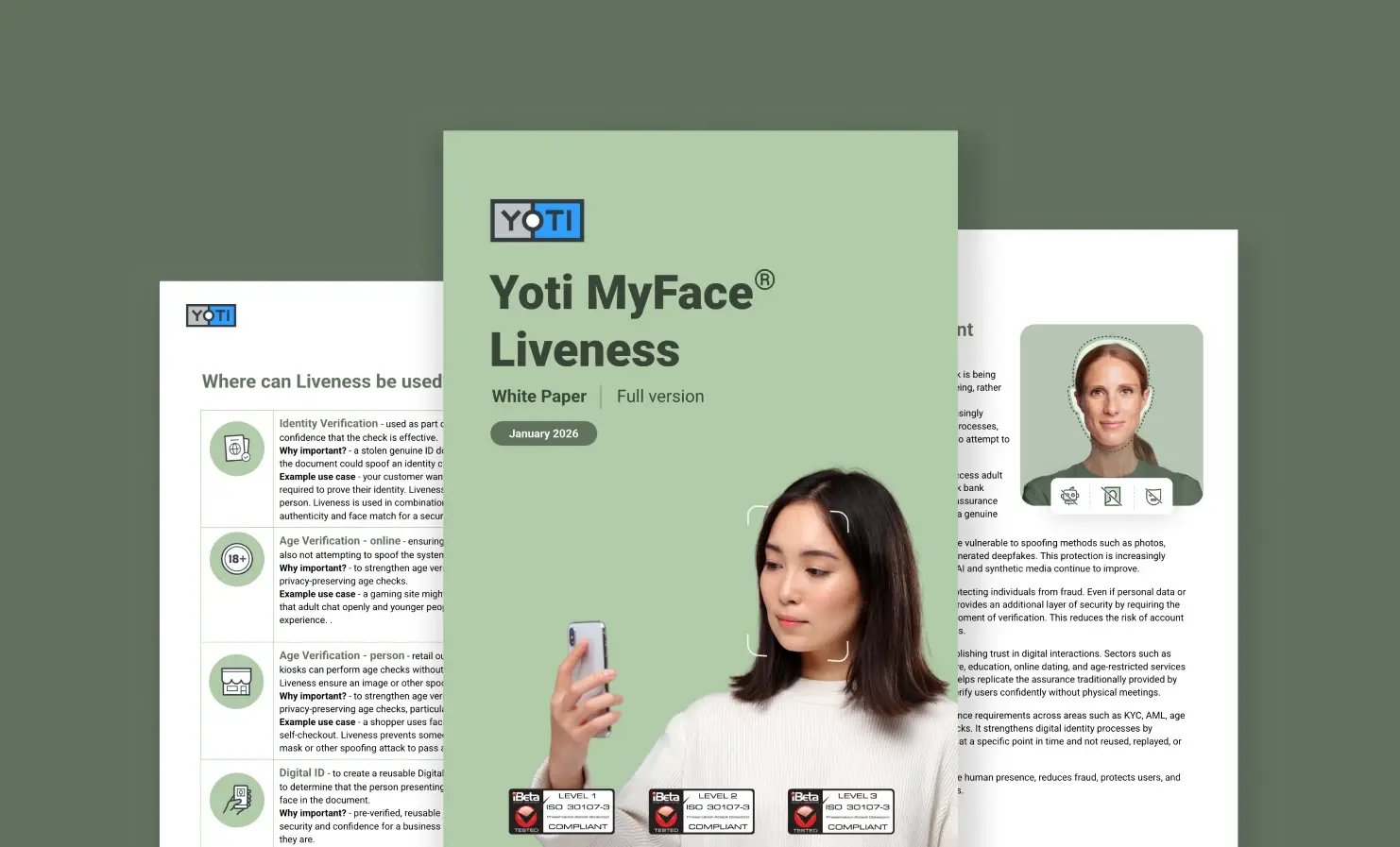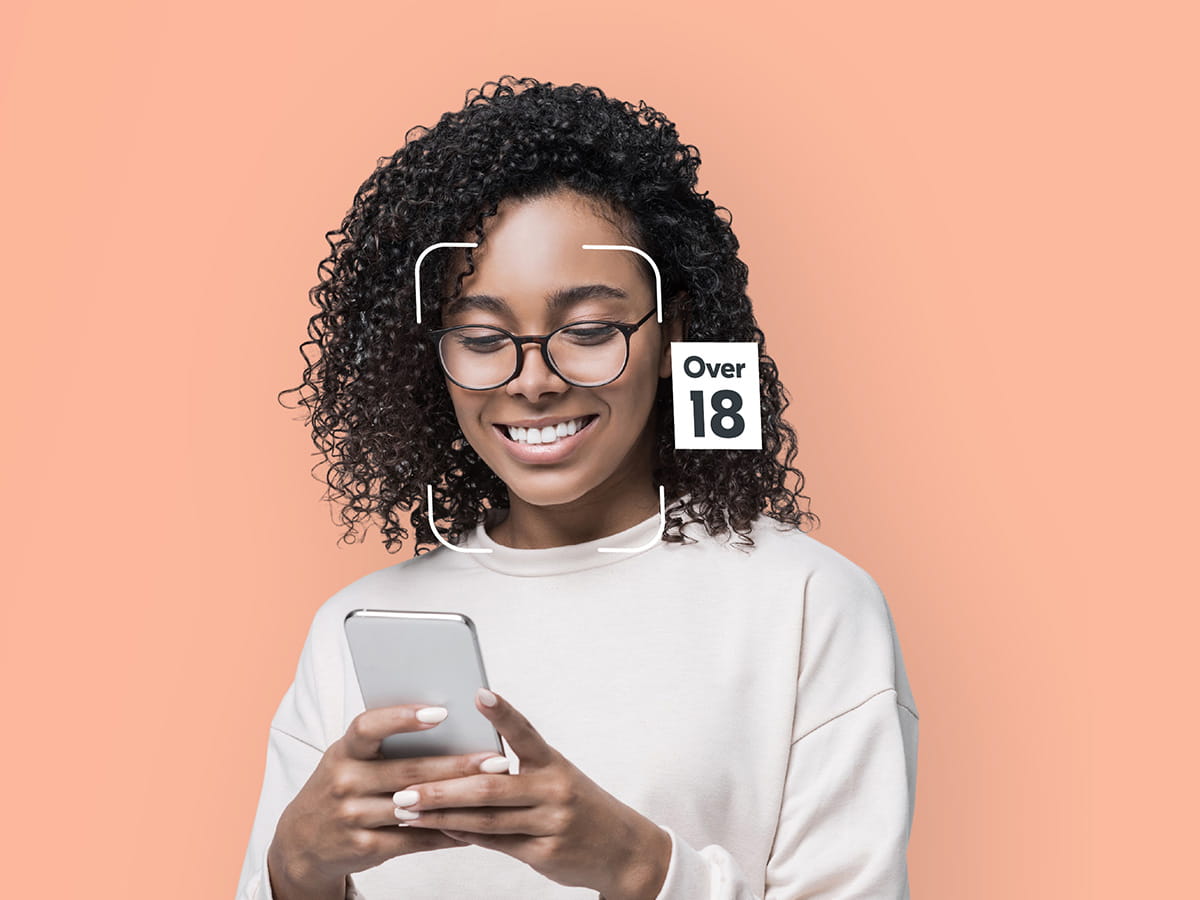Yoti MyFace liveness white paper
Learn how Yoti’s liveness solution can help you defeat spoof attacks Liveness detection is an essential part of any verification or authentication process. It gives you reassurance that you are dealing with a real human. Read our latest white paper on liveness to learn how Yoti’s MyFace liveness solution can help defeat presentation attacks including: Paper image Mask Screen image Video imagery Deep fake video Injection attacks Bot attacks Key takeaways from the report Yoti’s MyFace solution is iBeta Level 3 approved with 100% attack detection. Why liveness is important for verification and authentication. The difference between
How we build our AI models
At Yoti, AI is not a general-purpose experiment. Instead, it is a set of purpose-built tools embedded directly into our identity, authentication and age verification products, designed to deliver secure decisions quickly while not collecting or processing unnecessary data. Rather than using large, general-purpose AI systems, we build and deploy small, specialised models that each solve a clearly defined problem. This approach gives our customers stronger security, better privacy outcomes, faster performance and greater confidence in how decisions are made. How do our AI-based checks work? At Yoti, our approach is to use multiple models to perform very
A guide to Italy’s AGCOM new age verification regulations for adult content
Italy’s new AGCOM regulations for adult content, which come into effect on 12th November, emphasise two key points. The verifier must not know which platform or site for which the check will be used. The content provider must not obtain identifying personal data of the user, only a result like: ‘user is over 18’. This is known as the double blind method – ARGOM use the term double anonymity. Secondly, verification must be robust and each session, or visit, must be age-checked. ‘One and done’ age checks are not sufficient for repeat visits. Even if a user creates an
Italy’s new age verification regulation for online platforms
In May 2025, AGCOM, Italy’s Communications authority, adopted Resolution No. 96/25/CONS, which formally approves the rules for online age verification of users accessing adult content. Similar to the UK’s OFCOM and France’s ARCOM regulators, AGCOM requires websites with pornographic content to implement robust age verification checks for users to ensure they are over 18. All three regulations are designed to protect minors from accessing age restricted content. Italy’s AGCOM has specified two important requirements: Checks must be double blind – that is, age verification providers cannot see what platform is submitting the check, and the platform cannot see any
Yoti’s latest MyFace model re-certified with a perfect score for NIST Level 1 and Level 2 liveness detection
We are delighted to announce the results of the most recent testing of our latest liveness technology, MyFace. Working with iBeta, a NIST certified testing lab, Yoti’s latest liveness detection model was tested to be compliant with ISO/IEC 30107-3 standards. For both NIST level 1 and level 2, Yoti MyFace achieved: 100% detection of attack (0% false positives) 100% approval for genuine presentations (0% false negatives) NIST provides a framework for testing performance levels of liveness detection. Yoti’s passive liveness technology does not require any action from the user and works from a single selfie. Users do not need
German regulator KJM cuts buffer for Yoti's Facial Age Estimation for 18+ content checks from 5 to 3 years
The German regulator, KJM, has reduced the buffer for Yoti’s Facial Age Estimation for the highest level of age assurance from 5 to 3 years. This means, instead of users needing to be estimated as over 23, users must now be estimated as over 21. Originally approved by KJM in November 2021 for 16+ (erotic) content, in May 2022 KJM approved the use for Yoti’s Facial Age Estimation for the highest level of assurance, covering 18+ adult content, with a buffer of 5 years. Now, KJM have reduced the buffer required by platforms from 5 to 3 years. This






